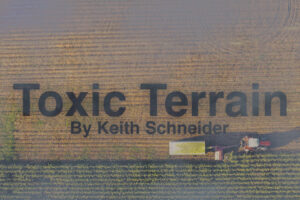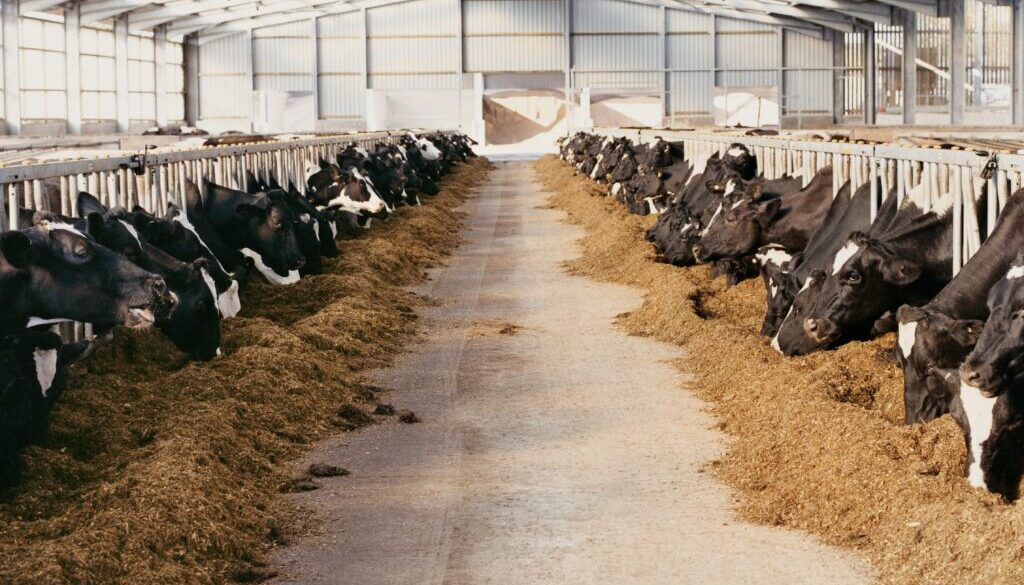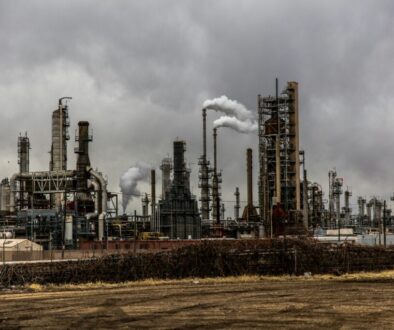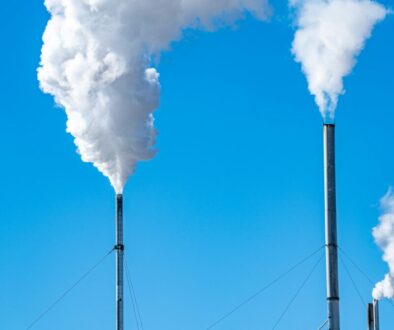Movement to limit CAFO pollution seen strengthened by Michigan court ruling
 A recent state court decision could transform how animal agriculture is regulated in Michigan, and potentially influence how other state and federal regulators oversee the industry’s mammoth waste stream, according to environmental lawyers and activists.
A recent state court decision could transform how animal agriculture is regulated in Michigan, and potentially influence how other state and federal regulators oversee the industry’s mammoth waste stream, according to environmental lawyers and activists.
The optimism from environmental advocates comes after the Michigan Supreme Court ruled on July 31 that the state’s Department of Environment, Great Lakes, and Energy (EGLE) has full authority to require industrial animal agriculture to take much stronger actions to manage the torrent of manure waste polluting waterways. The closely watched case pit the administration of Michigan Gov. Gretchen Whitmer against the powerful agricultural industry, led by the Michigan Farm Bureau.
“The decision is extremely powerful language for EGLE to act,” said Carrie La Seur, the legal director of For Love of Water, an environmental law and policy group that intervened on behalf of the state. “It’s clear that EGLE gained a lot of authority through this ruling.”
Michigan is one of many US states contending with rampant ground and surface water pollution caused by agricultural production. A key source of the pollution are the nation’s more than 21,000 large dairy, cattle, hog, and poultry operations, known as Concentrated Animal Feeding Operations or CAFOs.
The nationwide problem extends across the ocean. On Aug 9, the Center for Food Safety environmental group gave legal notification to a Hawaii “megadairy” of their intention to file a lawsuit in federal court. The allege the dairy has been illegally “discharging animal waste, solid manure, liquid manure, milk waste, and chemical pollutants” into the state’s waterways and into the Pacific Ocean.
Michigan has close to 300 CAFOs that feed most of the state population of 450,000 dairy cows, 4 million hogs, and 21 million chickens and turkeys, according to federal figures. They are responsible for most of the 4 billion gallons of untreated urine and feces and some 40 million to 60 million tons of solid manure generated by CAFOS in Michigan each year. The waste from these operations is stored in lagoons or spread onto farmland to act as fertilizer. In Michigan, regulatory figures show such waste spread over about 600,000 acres annually.
Manure contains toxic levels of nitrates, phosphorus, and harmful E. coli bacteria – and the contaminants commonly leach into surface and groundwater across Michigan, with the heaviest concentrations of the contaminants found in areas near CAFOS. Discharges from Michigan CAFOs contribute to phosphorus pollution that causes toxic algal bloom in Lake Erie.
“For decades, industrial livestock operations have threatened public health and the environment in communities across Michigan. We’re hopeful that EGLE will now take meaningful measures to hold these facilities accountable for their pollution, setting a strong example for regulatory agencies across the country,” said Lynn Henning, a Michigan farmer and program director for the Socially Responsible Agriculture Project, which opposes CAFOs.
Next steps?
Tim Boring, the director of the Michigan Department of Agriculture and Rural Development, said the court ruling better positions the state “to safeguard water quality,” without providing details about what regulatory changes may be coming.
And EGLE spokesman Hugh McDiarmid Jr. said state regulators have “not yet made a decision on next steps.”
But environmental attorneys said EGLE now has the authority to take a range of actions, including requiring CAFOS to treat manure in wastewater facilities to remove toxic chemicals and bacteria before the manure is spread on fields.
EGLE could also require CAFOS to install sensing and monitoring networks to assure that manure storage tanks and lagoons are not leaking and watersheds are not being polluted, they said. And the agency could also require animal agriculture to meet state limits for phosphorus, bacteria, and other pollutants in state waters’ and could limit the number of animals housed in a CAFO.
“It [EGLE] can now clearly do what is necessary to protect water quality in Michigan,” said Tyler Lobdell, staff attorney for Food and Water Watch, a national environmental law and policy group that has petitioned the US Environmental Protection Agency (EPA) to regulate CAFO wastes. “It’s fully empowered to rein in factory farm pollution.”
The Michigan Farm Bureau did not respond to requests for comment. But the organization said on its website that the court ruling was “disappointing” and will make it harder for agricultural producers to do business in the state.
Meanwhile, CAFO opponents in other states said they were encouraged by the Michigan decision.
“It means a lot for Wisconsin,” said Lisa Doerr, a hay farmer who worked with Wisconsin communities to pass ordinances blocking CAFO development. “The Michigan ruling is a beacon of hope for all these rural communities dealing with giant livestock factories.”
In Indiana, Sam Carpenter, executive director of the Hoosier Environmental Council, said the ruling in Michigan was an example of measures his state should take to protect its waterways.
“This is a rare win for water protection,” Carpenter said.
Environmental advocates said the ruling also strengthens work by an EPA advisory committee convened by the agency earlier this year to “restore and maintain the integrity of the nation’s waters” by addressing discharges from CAFOs. The committee report is due next year.
History of weak regulation
The July 31 court decision ends 20 years of weak CAFO oversight that started on April 22, 2004, Earth Day’s 34th anniversary. That day Gov. Jennifer Granholm signed amendments to Michigan’s primary environmental protection law that included a little-noticed provision promoted by the Michigan Farm Bureau. The two-line directive barred the state environmental agency from issuing any new rules to stem pollution or improve the condition of streams, rivers, lakes, and groundwater.
Over the years that followed, the state’s industrial-scale meat and milk operations became larger, more numerous, and much more polluting. In 2020, EGLE tried to implement modest new requirements for how CAFOs should handle manure, including restrictions on spreading in winter, and limiting spread on fields already saturated with phosphorus.
The Farm Bureau and several industry associations sued in state court, asserting that the new provisions were “rules” that were prohibited under the 2004 law. The Michigan Supreme Court 5-2 ruling stated that EGLE has full authority to regulate the industry.
The plaintiffs included the Michigan Milk Producers Association, Michigan Pork Producers Association, Select Milk, Dairy Farmers of America, Foremost Farms, Greenstone Farm Credit Services, and Michigan Allied Poultry Association.
The groups are considering whether or not to ask the court to reconsider the case, the Farm Bureau website states.
(This report, co-published with Circle of Blue, is part of an ongoing series looking at how agricultural policies are affecting human and environmental health.)
(Keith Schneider, a former New York Times national correspondent, is senior editor for Circle of Blue. He has reported on the contest for energy, food, and water in the era of climate change from six continents. )
(Featured photo from Unsplash+ in collaboration with Getty Images.)
 EWG
EWG


